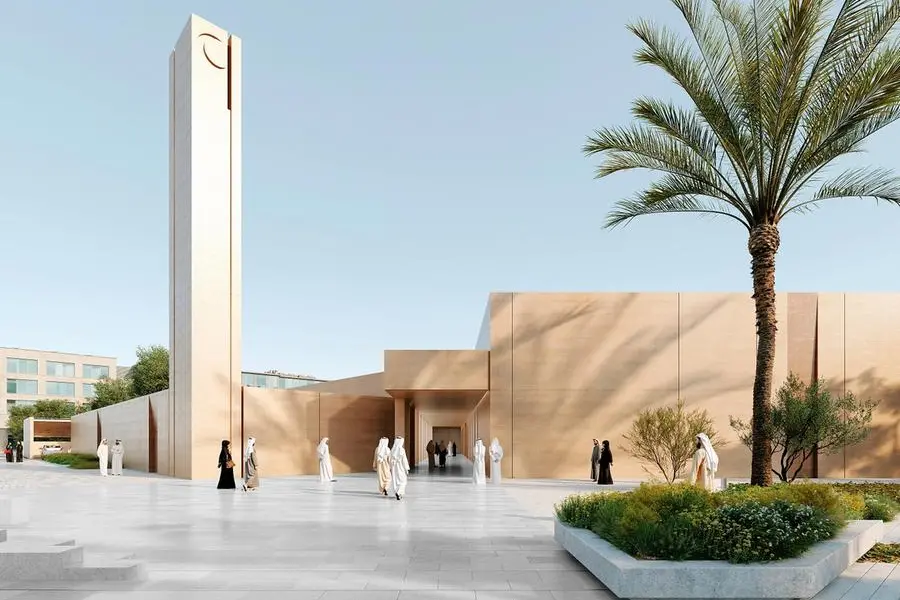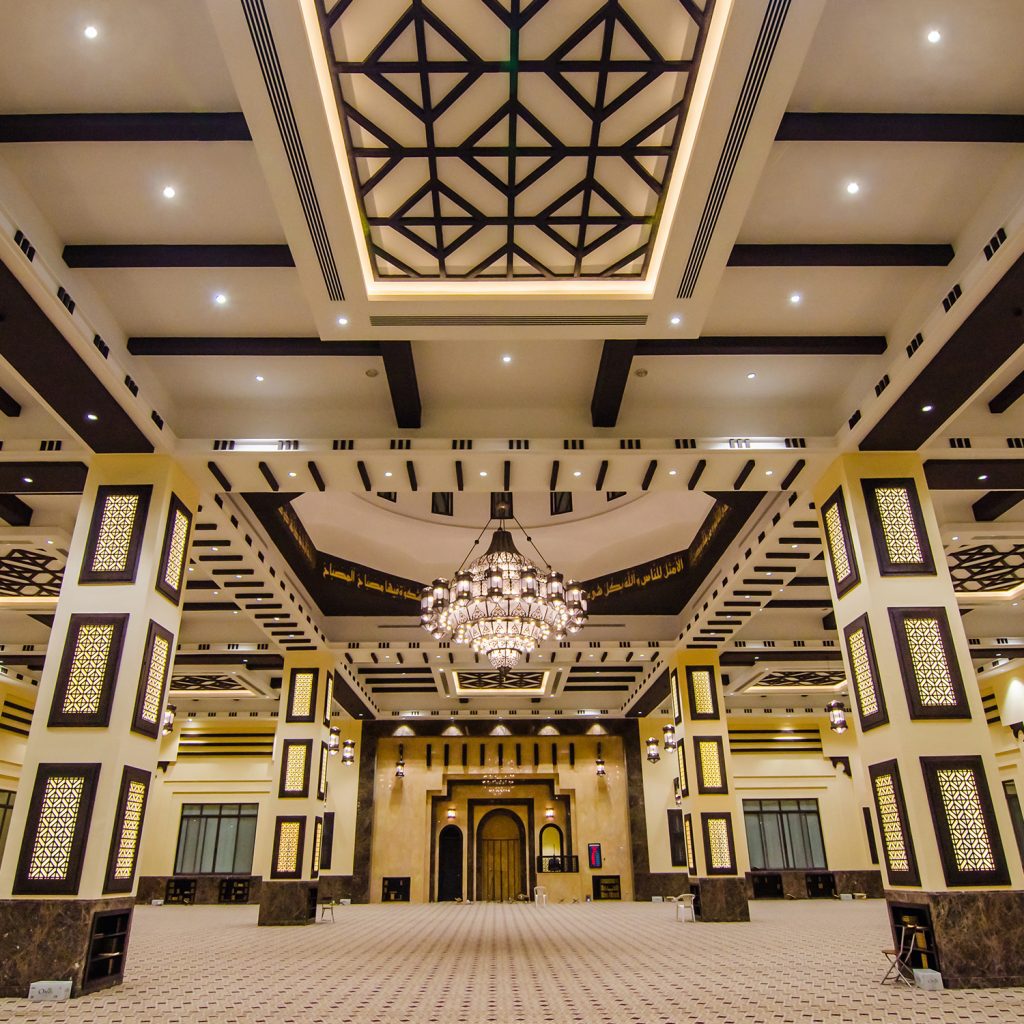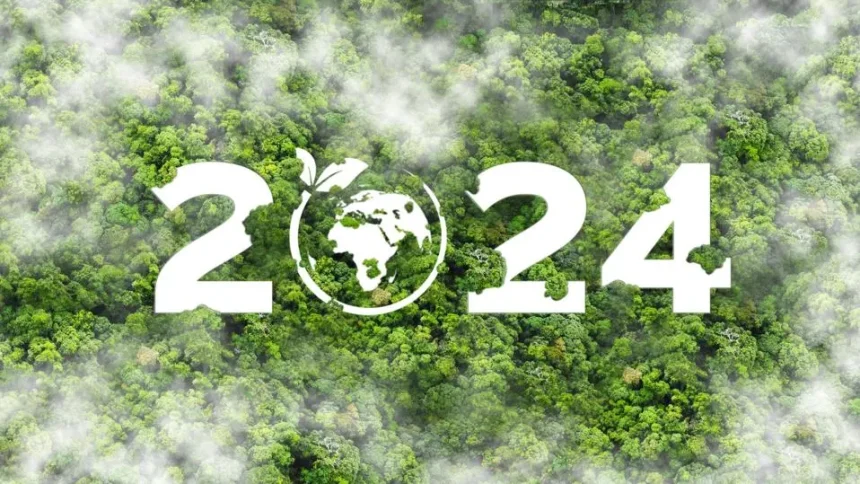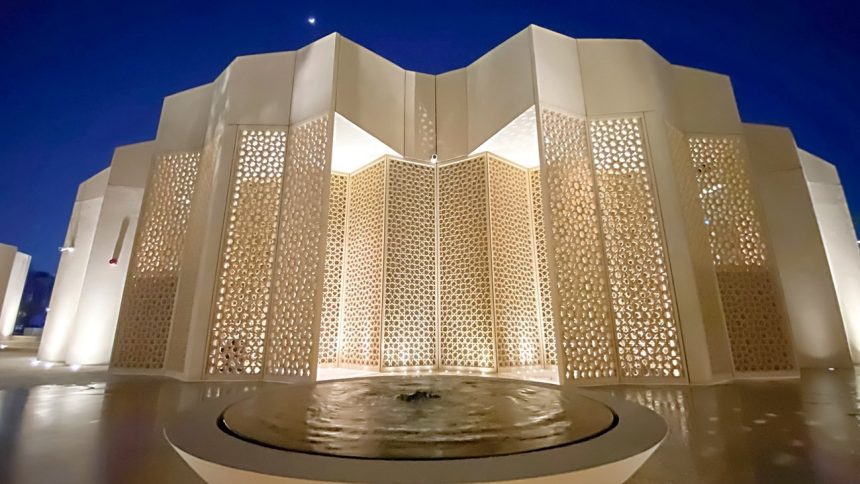UAE Green Mosques: An Inspiring Model for Sustainable Buildings
Mosques in the United Arab Emirates (UAE) are becoming a leading example of eco-friendly, green buildings.
As they are paving the way for wider adoption of sustainable solutions in the future.
The UAE is at the forefront of incorporating sustainability principles into various structures.
Including mosques, due to numerous government initiatives that aim to integrate sustainability into all development, service, and residential projects.
This dedication aims to improve the quality of life and achieve carbon neutrality.
Pioneering Models of Green Mosques in the UAE:
- Masdar City’s Sustainability Mosque:

Opened in January 2024, the Sustainability Mosque embodies a commitment to the highest international sustainability standards.
Its design utilizes the passive design concept, an architectural technique that maximizes energy and water efficiency.
- Sharjah Public Works Department Initiative:
During their participation in COP28, Sharjah Public Works Department announced an initiative to build two eco-friendly mosques.
Which will be equipped with energy-saving radiant cooling systems while prioritizing occupant comfort.
- Khalifa Al Tajir Mosque in Dubai:

Inaugurated in 2014, Khalifa Al Tajir Mosque was the first eco-friendly mosque in the Islamic world.
Its design adheres to the green building standards and specifications set by the US Green Building Council (USGBC).
- Al Ryan Mosque in Hatta:
Opened in 2021, Al Ryan Mosque became the first mosque globally to achieve the platinum rating for green buildings.
It spans 1,050 square meters and can accommodate around 600 worshippers.
- Al Sabteen Mosque in Ras Al Khaimah:
The Al Sabteen Mosque is the first smart and green mosque in the Emirate of Ras Al Khaimah.
It was designed and constructed using eco-friendly materials following both Emirati and international standards.

Key Features:
- Utilization of renewable energy solutions, such as solar panels.
- Technologies to optimize energy and water consumption.
- Implementation of insulating building materials to minimize heat transfer.
- Smart air conditioning systems.
- Recycling of ablution water.
- Diverse green spaces.
Tomorrow, the UAE will celebrate the International Day of Human Fraternity, which was adopted by the United Nations General Assembly in December 2020 after an initiative presented by the UAE, Saudi Arabia, Bahrain and Egypt with the aim of making February 4 an annual occasion 🤍 pic.twitter.com/41a9Qaen9x
— UAE Voice (@uae_voiceeng) February 3, 2024
Positive Impacts of the UAE Green Mosques:
- Contributing to reducing the carbon footprint.
- Improving air quality.
- Enhancing environmental awareness.
- Long-term cost savings.
UAE Green mosques serve as an inspiring model for UAE adhering to the highest sustainability standards.
They also represent a significant step forward in adopting eco-friendly solutions.
These mosques highlight the UAE’s commitment to achieving Sustainable Development Goals, fostering environmental awareness and creating a more sustainable future for generations to come.
Read Also:
Museum of the Future Welcomed World Leaders During COP28
The UAE Achievements in 2023 … A Sustainable Global Excellence





